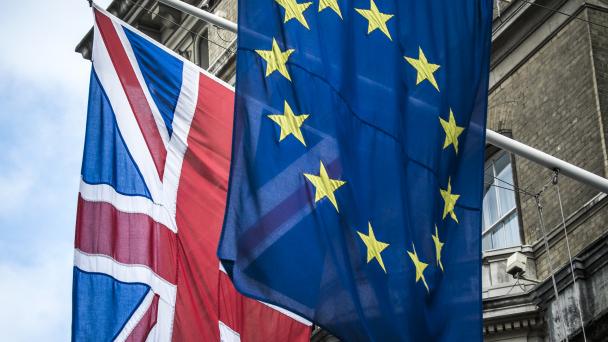Should Labour be questioning the economics of Brexit?


Traditionally in the UK, political party support was split among those with left- and right-wing ideology. The latest British Social Attitudes report looks at how the ideology of different political party supporters has changed in recent times.
Each year British Social Attitudes (BSA) asks questions to track the attitudes of different groups across the country. Participants are asked what political party they support or would vote for in an election, and for their opinions on specific issues, which since 2016 have included Brexit. Questions about inequality measure people’s position on a left-right scale, and questions about law and traditional values place people on a libertarian-authoritarian scale. These can then be used to track which values and attitudes divide the supporters of Britain’s political parties.
Pre-Brexit, support for political parties in Britain primarily varied along a left-right dimension and was only weakly associated with the libertarian-authoritarian scale. Labour supporters were traditionally more left-wing, concerned about inequality and supportive of the redistribution of wealth and power. Conservative supporters were traditionally more right-wing, supporting lower tax and the promotion of growth.
However, the Brexit debate in 2016 was not divided along these lines, with a similar proportion of left- and right-wing voters voting to leave the EU (52% and 45% respectively). In fact, the Brexit vote was strongly associated with the libertarian-authoritarian scale. Authoritarians, who support traditional values and social cohesion, were much more likely than libertarians, who value individual freedom, to vote to leave the EU (72% and 21% respectively).
Looking at political party support in 2016, while a similar proportion of those with left- and right-wing attitudes voted to leave the EU, people’s position on Brexit was strongly associated with which party they supported. Of those who voted remain, 67% supported Labour, the Liberal Democrats or the Green party, who had all campaigned for Britain to stay in the EU, compared to only 17% who supported the Conservatives or UKIP, parties that were subsequently committed to Brexit. On the other hand, 53% of those who voted to leave supported the Conservatives or UKIP, whereas only 30% supported Labour, the Liberal Democrats or the Green party.
Despite Brexit not being a central discussion point in the 2024 election, people’s current position on Brexit is still associated with their political party support. In fact, this has become more marked among those who support leaving the EU, with 65% (up from 53% in 2016) supporting the Conservatives and Reform in 2023, compared to only 18% (down from 30% in 2016) supporting Labour, the Liberal Democrats or the Green party., Party support is also now more strongly linked to other specific issues, like immigration and sexuality. As with Brexit, views on these issues are associated with the libertarian-authoritarian divide.
The libertarian-authoritarian scale has also become more strongly related to party identification in the years following the referendum. In 2016, Conservative support was 15% higher among authoritarians than libertarians, whereas Labour support was 14% higher among libertarians than authoritarians. By 2023 this had increased, with Conservative support now 27% higher among authoritarians and Labour support now 26% higher among libertarians.
Despite the fact that left-right ideology was not a dividing factor in Brexit, it has remained associated with political party support. In 2016, support for the Conservatives was 38% higher among those on the right than on the left,and support for Labour was 33% higher among those on the left than on the right. The equivalent figures in 2023 are similar, at 34% and 37% respectively.
So, while political party support in Britain used to be primarily driven by the left-right ideology, Brexit intensified a new ideological split: the libertarian or authoritarian divide. Whilst the main political parties did not make Brexit a prominent part of their 2024 election campaign, how will they adjust to the lasting impact of Brexit in a less familiar and more complex world of two-dimensional politics?
Receive a regular update, sent directly to your inbox, with a summary of our current events, research, blogs and comment.
Subscribe